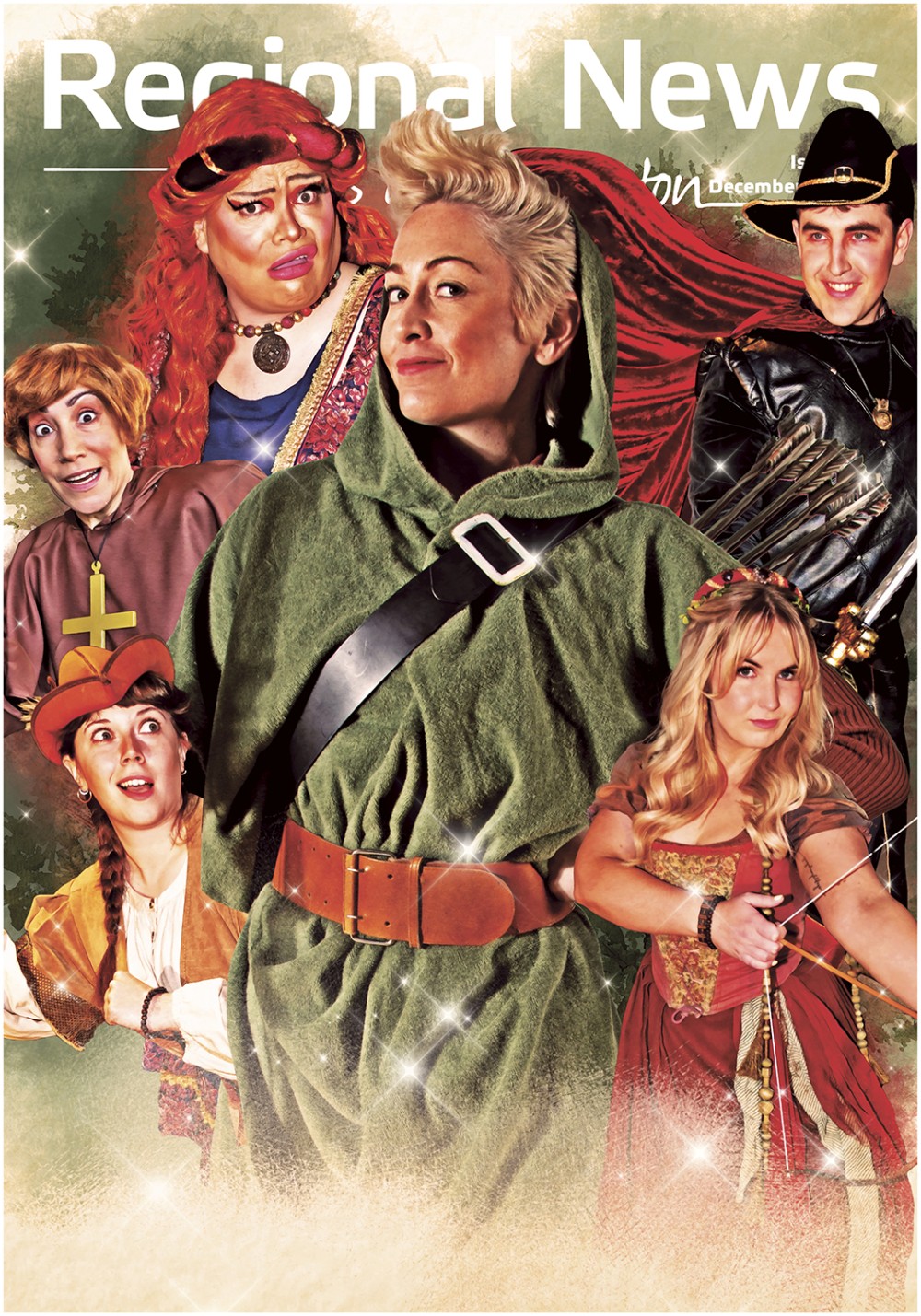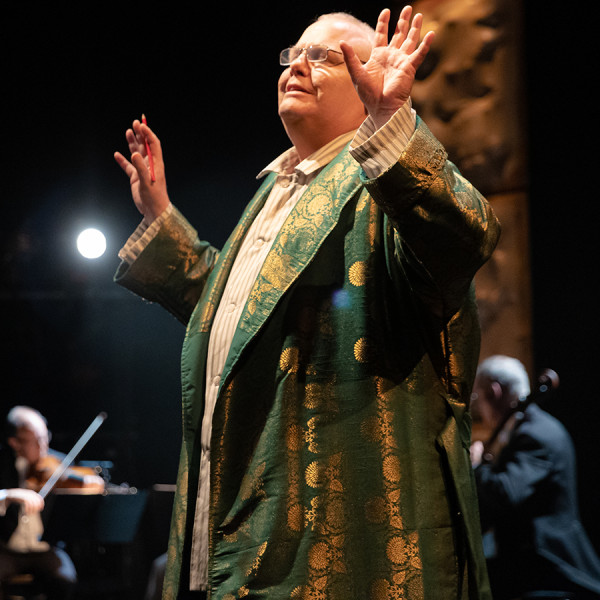
Two Very Serious Plays
Presented by: The Awkward Company
Written by: Ryan Holtham and Alex Fox
Gryphon Theatre, 4th March 2023
Reviewed by: Kate Morris
Are you ready to get enlightened? The Awkward Company invites us to learn two very serious lessons from Two Very Serious Plays.
First on the double bill is Tightbutt, a crash course on how to be tough presented by Johnny Beranucci (Ryan Holtham). The youngest Don of his Mafia family, he knows a thing or two about being tough and breaks it down in his 10-step programme. Johnny is the epitome of what he preaches – “Chew gum. Get yourself a nice weapon. Have a catchphrase.” But the veil soon slips, and the weight of ‘sucking it up to be a man’ becomes too much. A witty yet heart-rending piece.
Next we learn The Meaning of Art from not just any artist, but the great Phillip James-Lucy-Smith XXVIII (Alex Fox). Phillip deconstructs what art, theatre, and acting is, all while poo-pooing comedy as an artform. He is steadfast in his volition that artistry and comedy are unequal, with ironic results. The more Phillip tries to show the integrity of art, the more stage blunders he encounters. As a final resort, a letter from the first of his line turns everything he believes on its head.
Across both pieces, our protagonists come from a long lineage and have carried on both their names and their ideals, perhaps intended as a reminder of how prior generations impact and shape us – even when it's not always productive. This makes for a lovely through-line between the pieces that unlocks extra depth.
Both Tightbutt and The Meaning of Art present their own commentary on seriousness: the seriousness of being open with your emotions and the true strength it requires, and the need for joviality and comedy to help us through the seriousness of life and its everyday tragedies. This perfectly summarises the efficacy of Two Very Serious Plays and the impression it leaves – a hilarious joy to watch with the heart to match.











